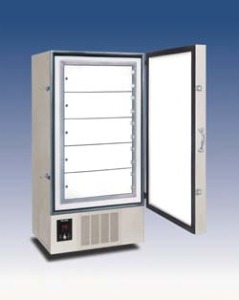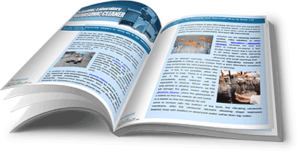Lab Freezer Alarm Crucial to Biological Sample Protection
An October news item reported that a lab freezer door left open at a medical research institute resulted in compromising some 26,000 specimens being used in the study of Parkinson’s disease. The article reported that the required storage temperature for the specimens is at a temperature below -80⁰C (-112⁰F). “This incident along with others mentioned in our posts, clearly indicates human error is an unfortunate cause of such instances and that many if not all losses can be avoided with a lab freezer alarm,” says Tovatech director Dr. Rachael Kohn.
Lab Freezer Alarm Systems
Ultra-low temperature freezers – those designed to maintain temperatures to -86⁰C such as the NorLake Select series available from Tovatech – come equipped with sophisticated alarming systems that signal when a door is left ajar or other temperature excursions that can be caused by power failures. “Indeed alarming systems are standard in many models of lab freezers and refrigerators, Dr. Kohn says. “But where they are not, there are alternatives that can be installed on existing units. Considering the value of specimens being stored, deciding to invest in lab freezer alarm systems should be a no brainer.”
Lab freezers, whether ultra-low-86⁰C or units freezing to -25, -30 or -40⁰C, should have high-low temperature alarming systems plus remote alarm contacts that can be connected to alarms that sound elsewhere in the research facility.
For units not equipped with a built-in alarming system optional digital thermometer alarms provide an alternative. Product temperature sensors are typically inserted a bottle of glycerin or glycol. This more accurately reflects the temperature of the unit’s contents rather than the air inside the unit that can change quickly when the door is open. The sensors are connected to exterior thermometer/alarms via a fine wire passing over the door seal.
“These systems rely on personnel being available to respond to the alarm,” Dr. Kohn points out. “If a facility is not staffed 24/7 and an incident occurs after hours results could be disastrous in terms of lost specimens. It is for this reason that we strongly recommend the iLab 600 Temperature Monitoring System. In addition to alerting a list of off-site personnel by email, phone, pager or text, it acquires and stores in an offsite location performance data in various reporting formats. Easily retrieved, the data provide a record of the event.”
Vigilance is Key to Protecting Biological Samples
All lab personnel should be properly trained on the importance of protecting valuable biological samples and to be continually alert to and respond to occurrences that may result in loss. Procedures should be in place to respond to uncontrollable events such as power outages and can include emergency generator systems or plans to move specimens to another location.
For additional information on this topic we invite you visit our post on Alarm System Options for Scientific Refrigerators and Freezers. If you have further questions, please contact our experts on lab freezers and refrigerators. We’ll help you select the equipment best-suited to your needs.

